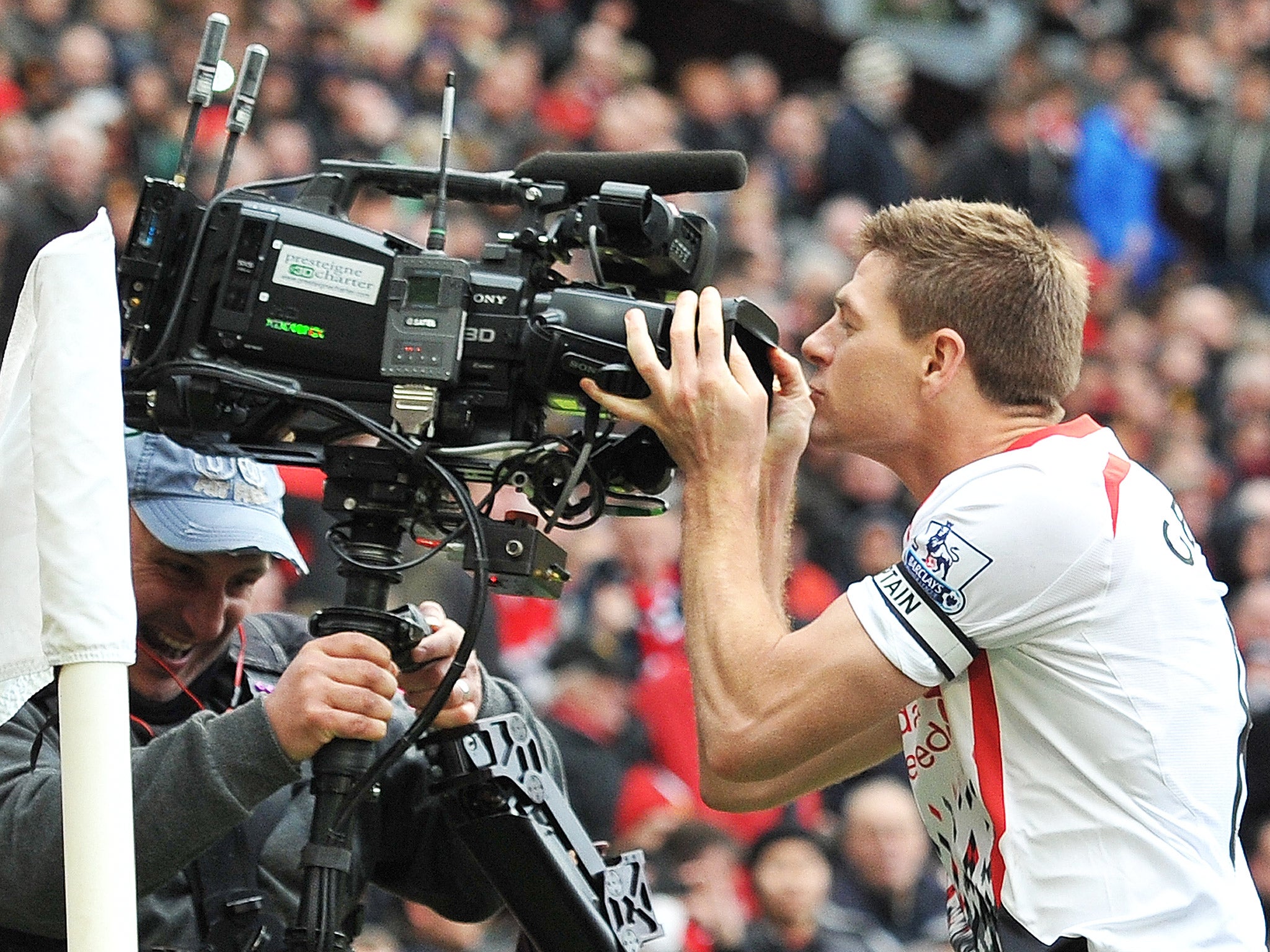Premier League deal: And still they don't have enough money to pay the living wage...
Soon these clubs will become countries of their own


Now that the Premier League has sold its TV rights for £5.1bn, I expect they’re already working out how to sell them for even more next time. Then in three years they’ll announce the new deal is for the entire global economy. The international shipping trade will then be ruled by Stoke City, and the pyramids will belong to Queen’s Park Rangers, though they still won’t show a profit because David Silva’s agent insisted the player received the Sphinx as a bonus for scoring against Sunderland.
Manchester City will own all the world’s oil instead of just half of it, and Arsenal will have become a country, buying a navy off West Ham during the January transfer window.
This £5.1bn will benefit us all, because Premier League executive Richard Scudamore assured us that “the money gets redistributed through grassroots football, down through the leagues and for charity purposes and the community.”
So THAT’S why he was determined to hold out for so much. He’d have taken less, but all through the negotiations he kept saying to himself, “mobility scooters, mobility scooters, mobility scooters”, and now he’ll have enough money to redistribute loads of them to charity purposes and the community.
Wayne Rooney’s agent may use the new deal to demand an extra 50 grand a week, but only so he can pay to redecorate care homes. And Roman Abramovich will as ever make sure the extra money finds its way into the community. His £300m yacht is used so often by pensioners for coffee mornings it’s a wonder he ever gets to sail round the Mediterranean at all.
The executives who agree these deals must all love the game, though to be accurate the word Richard Scudamore usually uses when referring to football is “product”. It’s this deep affection he has for his product that led him to propose that the Premier League has one extra game each season, played abroad somewhere as a marketing deal.
Sadly the idea was rejected, but he must have others, such as a rule that every team has to have an extra player who’s never played football. So Tottenham can maximise market potential by playing Beyonce in midfield, Southampton can cash in on The Theory of Everything and play Stephen Hawking in goal, and Leicester could play a local card and be managed by the skeleton of Richard III.
Instead of an extra game abroad, each team could play one in space, with commentators shrieking, “You have to say, Burnley just haven’t coped with floating away from the pitch as well as Liverpool.”
Money in football has become more than a means to acquiring the best team, it’s become the game itself. Play-off finals are billed as “£100m games”, and you expect the winning CEO to tour the town in an open-top bus, as crowds sing “Que sera sera, our shares are up 23, according to the FT, que sera sera.”
The biggest day in football now isn’t the Cup Final, it’s transfer deadline day, when Sky Sports broadcasts all day with the intensity of a war reporter that everyone in the world has been transferred somewhere, until you expect to find out your mum has signed a three-year-deal with Everton.
But where Richard Scudamore might have surprised people was when he was asked yesterday if he would like Premier League clubs, once they receive the money from the new deal, to pay their staff a living wage, and he refused to say that he would. The most this would mean paying out, for cleaners and ground staff currently on the minimum wage, is an extra £2 an hour. And you can see why this would upset things, because then the Premier League would have had to negotiate a deal for 5.1 billion pounds and two.
The increase, he accepted, will largely go to players already worth millions, because “wages are paid according to the free market”. So he’s not saying the clubs can’t afford to pay a living wage, he’s suggesting it would be almost immoral, as it would interfere with each person’s true worth.
In this sense football simply reflects the values of our times, and the view that wage agreements, unions or anything that protects the conditions of the majority of people, gets in the way of business and distorts this free market.
Instead, if a cleaner or barmaid is any good they’ll get themselves an agent, and negotiate a contract with the manager just like Frank Lampard. Everyone else will be subject to rumours that Sandra is considered too slow on the checkout at Lidl and might be sold to the Co-op, and fans of warehouses will call phones-in to yell, “I’m ringing about Ted, he’s too old to drive a forklift truck, he’s a liability, he needs to go NOW.”
So in a time defined by the word austerity, the Premier League has negotiated itself £5.1bn, while local clubs report that due to council cuts the fees for hiring pitches has trebled, and schools have to sell their pitches to developers, despite the redistribution to charity purposes and the community.
But at least we won’t have to worry that if Marouane Fellaini fancies buying a space station he’ll have to spend a whole week’s money.
And in the case of Leicester, being managed by the skeleton of Richard III might well represent quite an improvement.


Join our commenting forum
Join thought-provoking conversations, follow other Independent readers and see their replies